Chapter: Biology of Disease: The Nature and Investigation of Diseases
Types of Pathology Laboratories
TYPES OF
PATHOLOGY LABORATORIES
The function of
hospital pathology laboratories (Table
1.3) is to make scientific investigations of disease. The typical pathology
service offered by hospitals has six main branches: medical microbiology,
immunology, clinical biochemistry, hematology, histopathology and clinical
genetics.
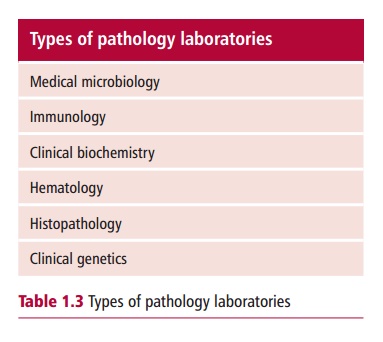
Types of pathology laboratories
Medical microbiology
Immunology
Clinical biochemistry
Hematology
Histopathology
Clinical genetics
Medical microbiology is concerned
primarily with the detection and identifica-tion of pathogenic microorganisms.
For clinical purposes, these consist of viruses, bacteria, protozoa, fungi and
helminths (worms). Microorganisms are detected directly in specimens obtained
from the patient or on swabs (for example throat, nasal) that are cultured in
growth medium to increase the number of microorganisms and allow their easier
detection. The presence of microorganisms may also be determined indirectly by
detecting antibodies produced by the patient in response to the infection.
Medical microbiology laboratories also investigate the responses of pathogenic
microorganisms to antibiotics.
Immunology laboratories are concerned with
studying the body’s immuneresponse in both healthy and diseased states. Immune
responses are ‘cell-mediated’ or ‘humoral’. The former involves T lymphocytes,
the latter the production of antibodies by specialized B lymphocytes. The
presence or absence of antibodies in plasma can be determined, for example, by
serum electrophoresis (Figure 1.9) to
assess generalized immunodeficiencies and other diseases. However, of more
diagnostic value during the investigation of immune diseases may be the
measurement of specific antibodies that are produced in response to a particular
antigen (which may be an infectious agent or an autoantigen). The number of
cells involved in immunity, such as T-cells, B-cells, T-helper and T-suppressor
cells, are often determined as this can provide valuable information about the
immune status of an individual.
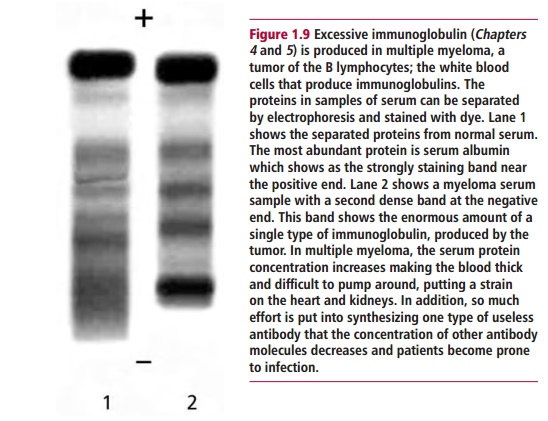
Clinical biochemistry is concerned
with investigating the biochemicalchanges associated with diseases. A wide
range of substances or analytes are
measured in clinical biochemistry laboratories. Some of these analyses are
carried out routinely on all samples (blood, urine) coming into the laboratory
using automated methods (Figure 1.10);
others need to be requested specially. Analyses include those for proteins,
enzymes, hormones, lipids, tumor markers, blood gases, sugars and inorganic
ions to investigate a variety of disorders, including those associated with
abnormal renal, respiratory, metabolic, bone and endocrine function. In
addition, analytes are measured during investigations of genetic disorders both
to diagnose and to monitor the effectiveness of therapies.
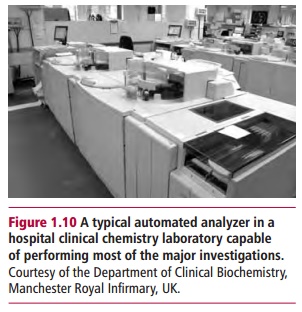
Hematology is concerned with the study of
disorders of blood cells, includingblood clotting (coagulation) defects.
Hematological investigations can involve determining the concentrations of
blood proteins, such as hemoglobin, to aid in the diagnosis of diseases. The
microscopic examination of blood films, thin layers of blood spread out on a
microscope slide and stained (Figure 1.11)
and marrow removed from bone cavities by aspiration (Figure 1.12) may also be helpful. Some hematology laboratories may
also be involved in the provision of blood and blood products for transfusion
services, but these are often run as separate services.
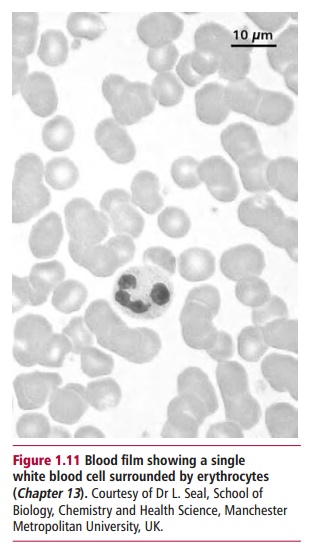
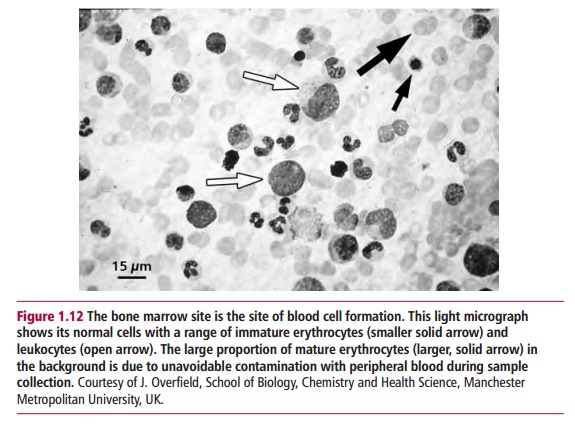
Histopathology is concerned with the
investigation of disease by examiningcells and tissues. This involves the
macro- and microscopic investigation of body tissues for the identification of
disease. Amongst other things, histopathology laboratories are usually involved
in the diagnosis of malignancies and can also provide information on how far a
tumor has progressed (‘staging’) and therefore can suggest a likely prognosis.
In addition, histopathology laboratories may also assist with investigation of
a range of infectious and inflammatory conditions affecting body tissues.
Clinical genetics is a growing area in the
investigation of diseases. A major focusof clinical genetics laboratories is
the identification of genetic abnormalities
This could include, for example, identifying the number and form of
chromosomes (Figure 1.13) in blood
films to identify any numerical and structural abnormalities.
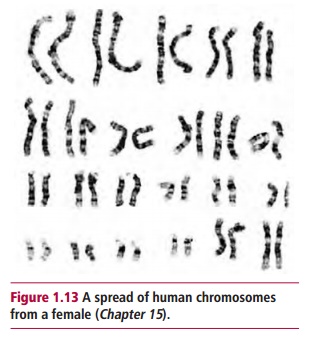
Related Topics